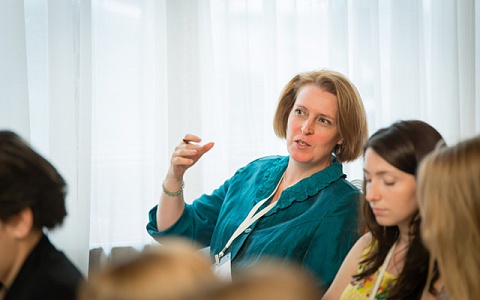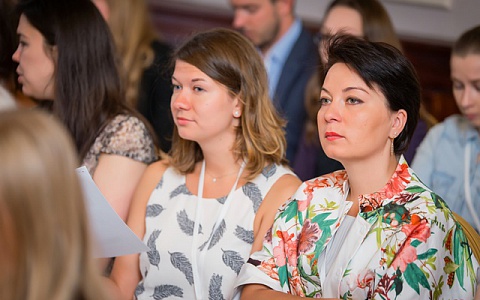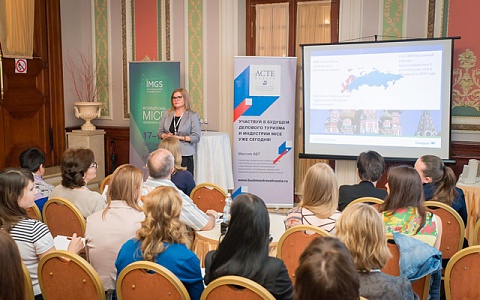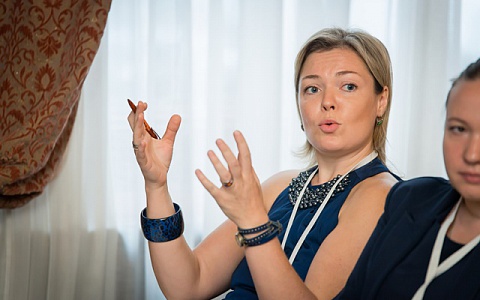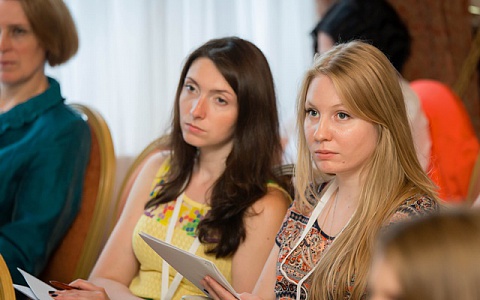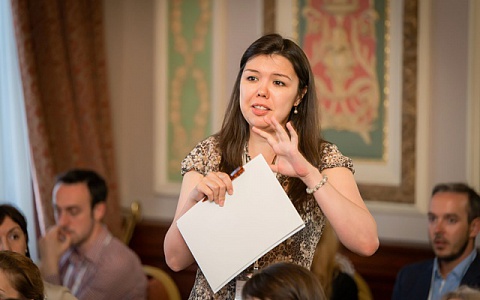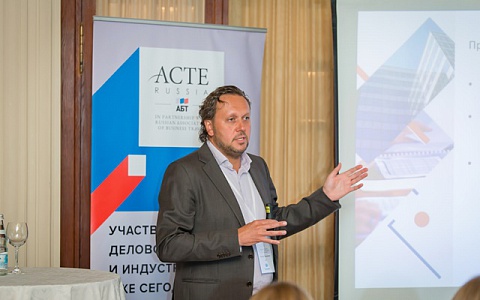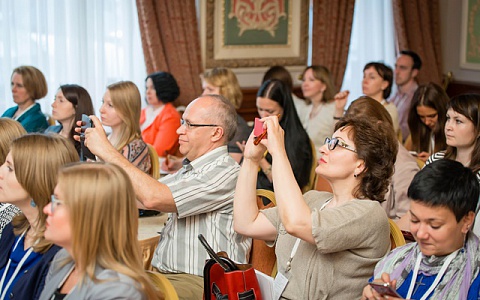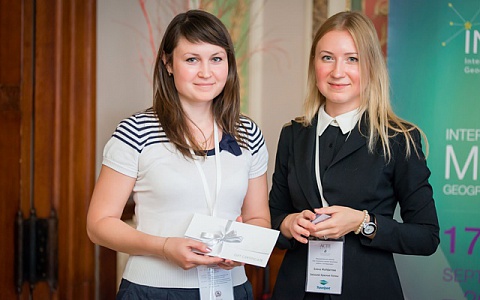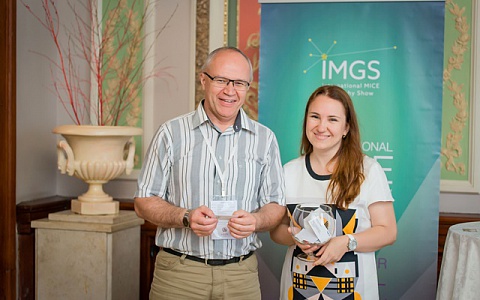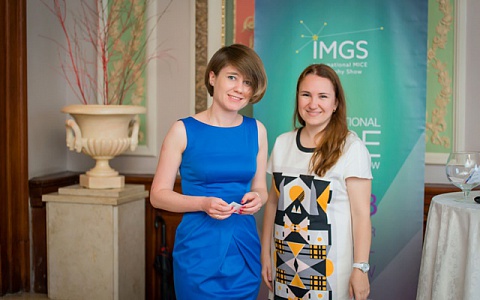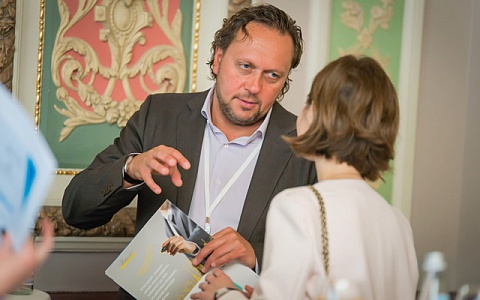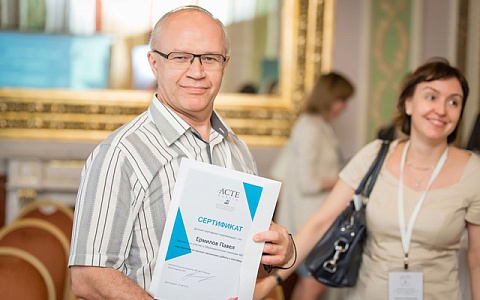Online technologies will simplify business trip arrangement, but do not cancel TMC support
«The corporate buyer and the travel agency can not come to an agreement at all: the customer thinks that online technologies will free him from contacting the TMC, but he is mistaken» — this was the main topic of ABT-ACTE Russia educational session «How technologies change the mechanisms of cooperation with providers» that was announced by Valeria Zakharova, sales manager of IT-provider Travelport. The meeting was held in Moscow hotel Savoy on June 25.
«But until the consensus is found, we can offer services that will satisfy the both parties», the expert stressed.
How are business trips planned? As a rule, the traditional method is used — a TMC, and only 10% of companies use self-service. Although many of them look forward to using it. According to a survey held by Travelport, about 20% of customers are ready to switch to an online booking platform at the moment, 38% — in two years, 33% — in five years.
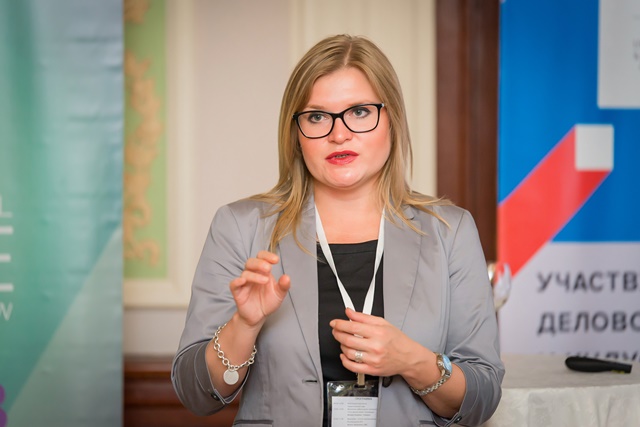
In Ms Zakharova`s opinion, when you choose a booking tool, you should weigh all the pros and cons: the global solution implies general contents, its disadvantages are complexity, remoteness and high price. On the contrary, local solutions contain specific contents, have an adequate price, and you can count on centralized user support.
In order to make cooperation between the TMС and the customer more efficient, partners should take into account each other’s interests. «What does the customer want?» Valeria continues. «To optimize his travel budget, to introduce an online tool, to analyze the traveller’s experience. In other words, he expects the agency to offer him consultations, good financial reports, business trip statistics and a constant increase of the service range».
Aleksandra Perekalskaya, administrative manager of Leroy Merlin brought the example of her company using the online tool to help the corporate buyer optimize his business trip planning process together with the agency. The company switched to online two years ago.
«We needed about 10 minutes on average to fill in a standard booking form offline. It took us about half an hour to find a suitable variant, because you need time to choose the best flight from the commercial point of view. It took us about a day to have our request proceeded», the expert said.
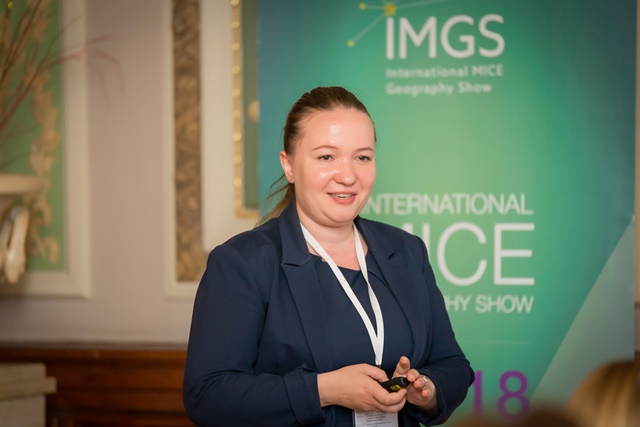
When we analyzed the same figures for online booking, we found out that they were much smaller. It takes you 10 seconds to fill in a standard form: there is the main data in the program already. It takes you only a minute to find the best variant. «Only the request procession time has remained the same — it still takes some providers about a day to confirm your booking», Ms Perekalskaya explained.
That is, if employees spent about 45 minutes on average to arrange their business trip earlier, now it takes them 14 minutes. «The online tool is your time economy», the speaker concluded.
And it turned out to be money economy as well. In 2009 the cost of one travel service in our company equaled 5,5 thousand roubles on average, and the figure grew up to 9100 roubles in 2012. «In general this growth was explained by the launch of new shops in new destinations», Aleksandra explained. The next year the company switched to online booking partially, and the average cost of business trip service dropped by one thousand roubles. And in 2014, when almost the whole company started using OBT, this value dropped to 6700 roubles.
At the same time, the average service cost compared to the previous year, when employees did not make bookings with the online booking tool yet, dropped by 17%, and the number of transactions increased by 21%. «We were surprised to see that the airline ticket price was the key factor — it decreased by 16% on average. Employees started booking the tickets with the lowest rate available», the expert said.
Apart from time and budget economy, the online booking tool ensures travel policy compliance. «OBT lets us remind the employee about the fact that there are certain limits in our company. Every customer is stored in the system, as well as the lowest rate he has chosen», Aleksandra notes. «Moreover, we are growing rapidly at the moment and our top managers are out of office very often. But at the same time they have a very important task — to approve the budget, the business trip cost of the employee. And our tool lets them make this approval remotely, which makes us more mobile».
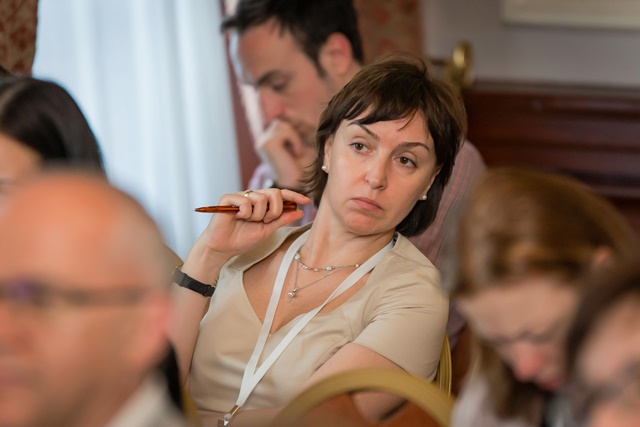
The OBT also solves the problem of reports and on-the-spot access to information. «Do you want to know where you are at the moment in your travel budget?» the expert addressed the audience. «The Online took offers the authorized user, the financial director in this case, an opportunity to load reports for a certain period of time on trips of a certain employee or the whole department».
And finally, Aleksandra Perekalskaya drew attention of her colleagues to the fact that the online tool meant uniformity. Because if you load certain limits into the system, you may be sure that a travel coordinator in Moscow, as well as in Novosibirsk will assess travel budget limits of the company correctly.
Philip Lookianenko, general director of HRG Russia explained what a Business Travel Account (BTA) was, its difference from an ordinary plastic card and its operating principles. The expert said that only one company, American Express, was ready to offer this solution, which is known as a lodge-card in Europe, in the Russian market. Initially BTA was intended for corporate payments for airline tickets: in most companies this cost item accounts for 50 — 70% of their travel budget. In this case this tool is considered to be the optimum tool of settlements between the agency, the carrier and the customers.
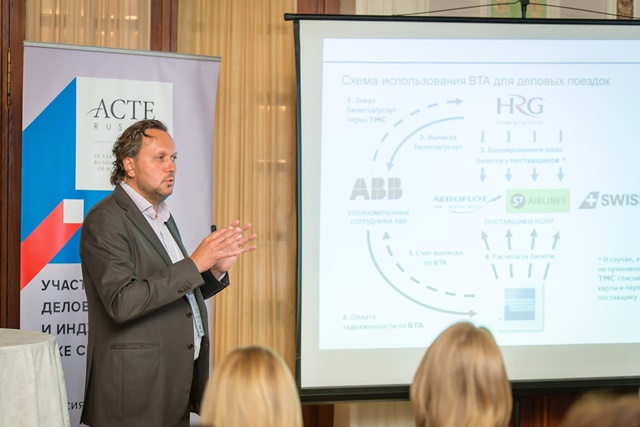
Roughly speaking, BTA means a number absolutely identical to a standard credit card number. The tool does not have the tree numbers you can usually see on the back side of a plastic card.
Mr Lookianenko stressed that the tool may be of interest both for the corporate buyer and the agency at this precise point of time, when TMCs cannot serve as credit institutions for their customer.
«All the TMCs work with the air carriers under the BSP settlement system, regulated by IATA. The idea is that we have to pay for tickets we issue», the expert said. «Starting from January 2015 the BSP cycle was shortened: now we have to strike the balance of the tickets sold once per week and provide a single report to the airline. Correspondingly, the payment should be made not later than one week after the report».
Not all the customers are willing and sometimes able to settle bills of the agency in due time: the company may have complicated internal approval procedures and revisions. So this payment frequency is inconvenient for the customer more often than not.
«The BSP cycle may vary in different countries», Mr Lookianenko notes. «And I suppose, it is one of the toughest in Russia. But in general IATA tends to bring it to the single standard all over the world. In other words, airlines try to optimize their financial flows — and to be more exact, to get money for their tickets as quickly as possible».
In this situation travel agencies are forced to look for new solutions. One of them may be the virtual payment account BTA by American Express, the expert supposes.
What does the process look like, if you use an account like this? The company turns to a TMC for certain service, the agency books it, an airline ticket in this case. The money is transferred from the virtual card to the airline. The ticket is issued. The customer settles his debt to American Express bank, which has full information on all the transactions made by the TMC as an operator.
«You sell tickets for a month, and at the beginning of the next month you receive information on all the bookings you have made and see the amount withdrawn from the card that belongs to you as a customer. And only 28 days after you get the report you have to pay American Express for the tickets you issued», the expert said.
The main feature of the tool is the fact hat it is intended to pay for travel costs only. «You can not us the card to pay for a bunch of flowers, for example. And it was made on purpose», Philip added.
And the main thing is that the virtual card can be used by the authorized agency only. «Not long ago one of the customers asked us: „Can we use the card without the agency?“ My answer is „No, it won’t work“. This is a limitation set by the bank: without the TMC it will not be able to provide closing documents to you, as well reliable information on how the money was withdrawn from the virtual account», the expert concluded.
Then Elena Maifatova from Swissotel Krasnye Holmy took the floor. She spoke about the types of cooperation the hotel offered corporate buyers at the moment. Of course, it is an RFP (request for proposal), a direct agreement and a tree-lateral agreement.
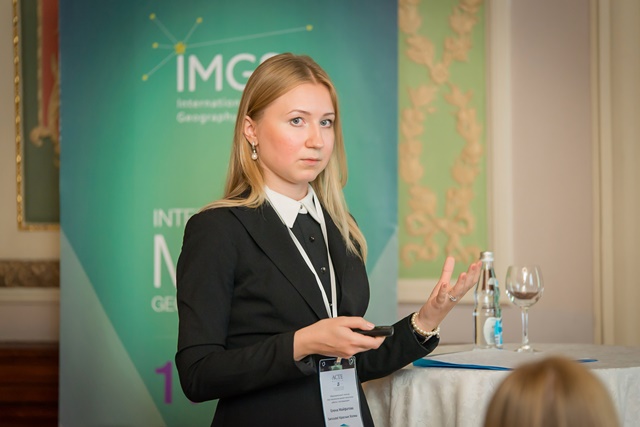
In Elena’s opinion, the optimum variant is a request for proposal. The idea is that the hotel receives a list of questions it has to answer. «There are usually a lot of them», the expert notes, «and they are related not only to rates, but also to rooms, safety policy of the hotel — everything that is important for an international company and forms the condition of agreement conclusion». Ms Maifanova also stressed that this procedure was confidential, and only the hotel manager had access to this information.
After the company gets information on rates, there comes the stage of talks: the company may address the hotel again and ask it to revise a certain issue. And it may not address the hotel any more, that is it will see the proposal and reject it. Or it may approve it right away. «I would like to note that proposal validity may vary», Elena added. «As a rule, it is one calendar year. There are companies that request for rates for two years ahead».
After the proposal has been approved, rates are loaded into the online booking system of the company, so that employees can see them and make bookings.
Many global companies now work through an RFP, the expert states. Because such a scheme is practical and structured. It is efficient and saves time. «Besides, it is remote work», the expert said. «As a rule, if we speak about an international company, it usually has a separate travel department or a coordinator responsible for this kind of work. Another plus is the fact that bookings may be received directly, as well as through GDS».
The meeting ended with a lottery that included prizes provided by event partners. Besides, all the participants received a certificate proving their participation in ABT-ACTE Russia seminar.
Marina Osipova
Source: buyingbusinesstravel.com.ru
